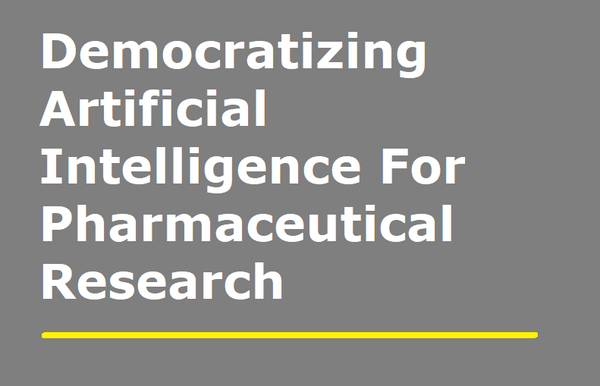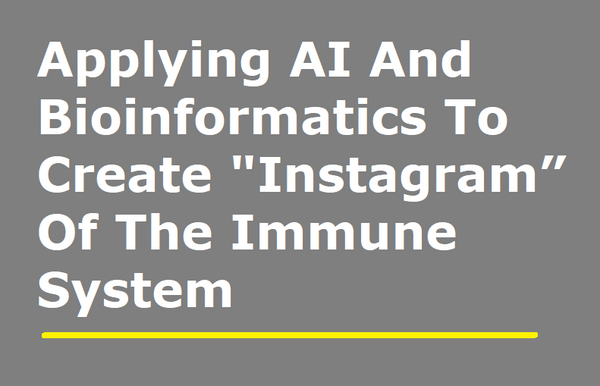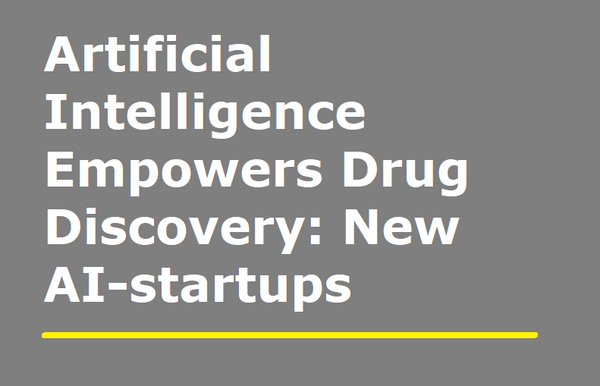[Interview] Using Generative AI to Rapidly Identify Novel Therapies for COVID-19
Generative models have become one of the hottest areas in de-novo molecular design over just several years, basically revolutionizing our perception of what can be done with artificial intelligence in this area. One important aspect of generative models is that they can produce new quality hit molecules using combined data from various experimental and theoretical sources -- and output results rapidly.
One notable drug discovery startup betting on deep learning and generative models for innovative drug design is Vancouver-based Variational AI.

In a recent detailed interview with BiopharmaTrend.com, Handol Kim, Co-founder & CEO of Variational AI, told us a lot about how AI can be applied for drug discovery, and specifically, how the company is using various artificial intelligence techniques, including variational autoencoders, recurrent neural networks composed of long short-term memories (LSTMs) and gated recurrent units (GRUs), and attentional mechanisms in their practice. He also commented on Canada’s leadership in the AI field, and what incentives exist there to grow a technological startup.
Now, Variational AI announced a new achievement -- in partnership with adMare BioInnovations, Canada’s Global Life Sciences Venture, they received funding support from the Digital Technology Supercluster for repurposing of drugs for COVID-19.
RELATED: 213 Companies Applying Artificial Intelligence In Drug Discovery and Development
Here we continue a dialog with founders of Variational AI -- this time Dr. Jason Rolfe, Co-Founder & CTO, agreed to provide more details about the new project and the company’s plans for the nearest future in a short written interview:
Q: Could you tell us a little more about this drug discovery effort and how soon you believe your team can get results with the generative AI-engine you are using at Variational AI?
Jason: For new targets like SARS-CoV-2, traditional drug repurposing strategies rely on docking, molecular dynamics, and related models based upon crystal structures of the target. Their efficacy is limited by the inaccuracy of binding affinity predictions from crystal structures, which do not fully account for induced fit, entropic effects, solvation, and similar phenomena. Experimental evaluations of ligand-target interactions capture these nonlinear effects, and achieve superior accuracy, but are time-consuming and expensive. Critically, such experimental data is not yet available for SARS-CoV-2. While biochemical inhibition data has been collected for homologous targets in similar viruses, such as SARS-CoV-1, this data does not reflect the unique aspects of SARS-CoV-2 proteins.
At Variational AI, we are using generative AI to effectively combine models based on SARS-CoV-2 crystal structures with existing experimental data on homologous targets. This enables us to more accurately identify FDA-approved drugs that are effective for COVID-19. Our generative approach uses deep learning to construct an invertible mapping to a continuous molecular representation, in which pharmacological properties change smoothly. Within this continuous molecular representation, we learn quantitative structure-activity relationships governing both homologous experimental data and computational data based on SARS-CoV-2 crystal structures. Our joint modeling approach yields superior accuracy compared to either approach alone. Moreover, our continuous molecular representation smooths activity cliffs, eliminating sharp changes in molecular properties due to small changes in structure, and further increasing accuracy.
In this Supercluster project, we will identify promising existing drugs for COVID-19 in only a few months, without requiring new experimental data. Since our models are based entirely on large, diverse datasets, we will be able to pick out compounds that have not previously been used as antiviral drugs. The generative AI models we develop will also form the basis for proposing novel compounds that are more potent than any existing drug, while nevertheless maintaining desirable ADMET properties.
Q: What kind of support you will be getting from the Digital Technology Supercluster? Any specifics you can share at this point?
Jason: The Digital Technology Supercluster is the funding organization and is providing funds through their COVID-19 Solutions call. Our rapid drug repurposing project with adMare was one of four projects that were announced earlier this week, but more projects will be announced. We are delighted to have been selected among the initial projects and look forward to contributing our efforts alongside adMare BioInnovations to rapidly generate actionable results that can lead to better outcomes for those suffering from COVID-19. More information about the Supercluster announcement can be found here and here.
If you liked this post -- share it with your network to help us spread the word! Also, Subscribe to our bi-monthly updates to stay tuned for new companies, innovations, market reports, news, and trends in the life sciences.
Topics: AI & Digital



